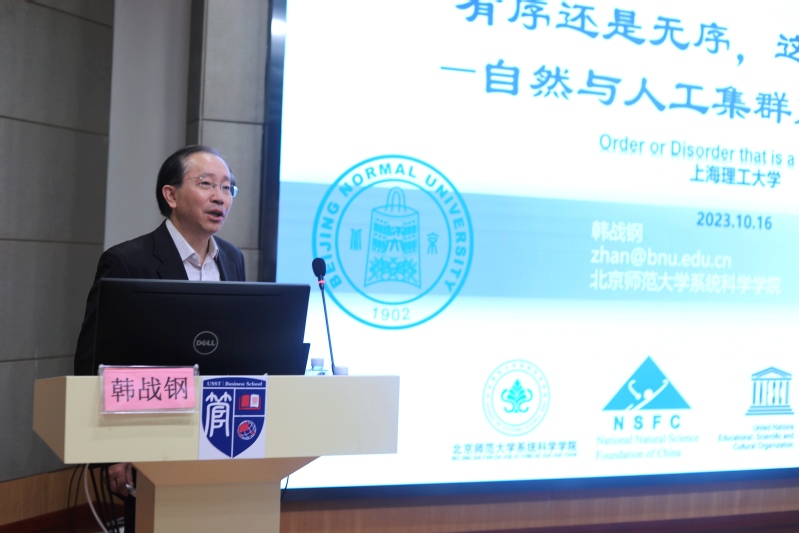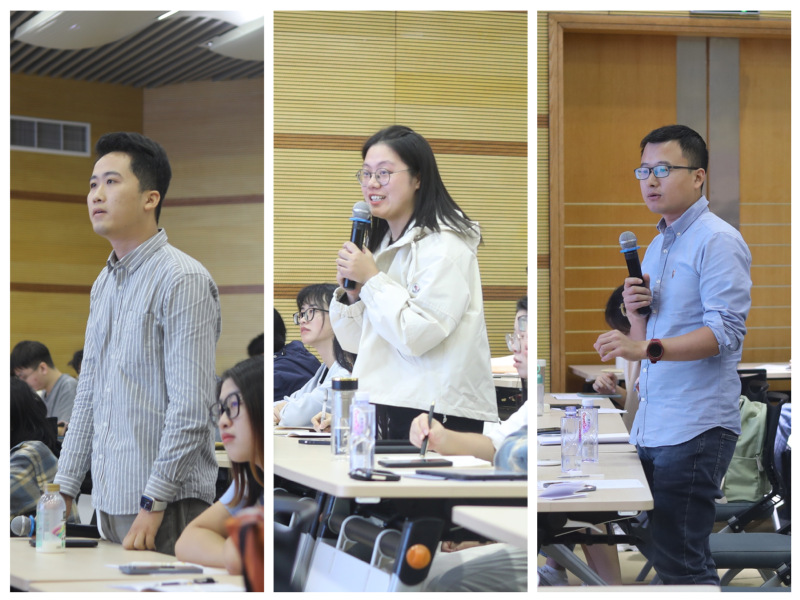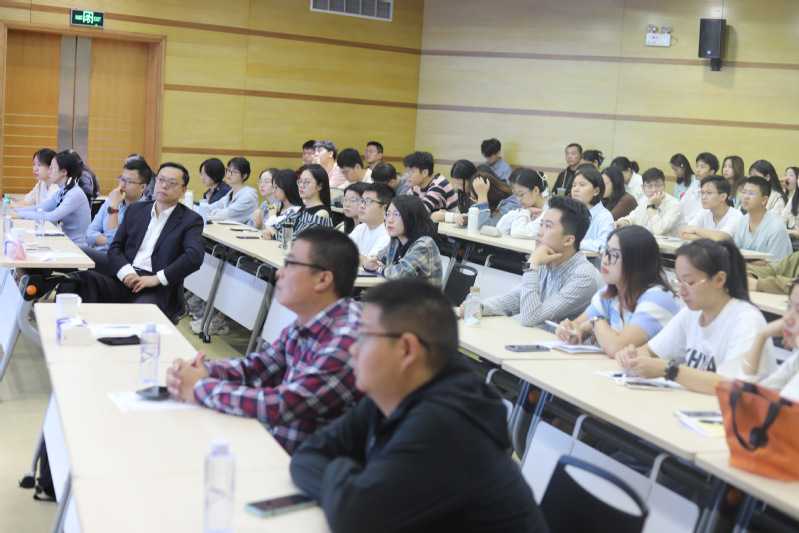On October 16th, 2023, Prof. Han Zhangang of Beijing Normal University (BNU) was invited to our university to give a seminar entitled Order or disorder, this is a problem: the complexity of natural and artificial cluster systems. This is the third lecture in a series of lectures on the frontiers of systems science of USST. More than 100 faculty and students from systems science and other disciplines attended the lecture. The seminar was presided over by Zhao Laijun, dean of the Business School.

Zhao Laijun presided over the seminar
Starting from the country's emphasis on the complexity of systems science, Prof. Han outlined a series of ordered-disordered interaction and coexistence traits observed in cluster behavior. For example, in the study of biological cluster behavior, ant and fish colonies have been found to switch between resting and panic evacuating states, between random walks and aggressive states, and between ordered and dynamic disordered states. In addition, he introduced the remarkable phenomenon that cluster behavior models exist not only in the switching between ordered and dynamic disordered states, but also between ordered and quenched disordered states. By applying the law of biological cluster to the swarm robotics control, new elements such as local information and non-centralized control are introduced for robotics control, reducing the amount of communication and calculation, and improving the adaptability of the system to extremely changing environments. The idea of clustering can also be applied to the research of carbon pricing for the new energy transition in the dual carbon strategy, which provides a decision-making basis for the design of carbon trading and carbon tax mechanism. The study of the cross-scale and cross-level adjacent states of the system leads to a deeper understanding of the system and provides a new perspective for the regulation of the cluster system.

Han Zhangang gave the seminar
Then, Han Zhangang had in-depth discussions and exchanges with the participating faculty and students. Zhao Laijun summarized the seminar and thanked Prof. Han again for his insightful sharing.

Discussions and exchanges

The seminar site
Translated by: Bai Yuting
Reviewed by: Nie Rui


